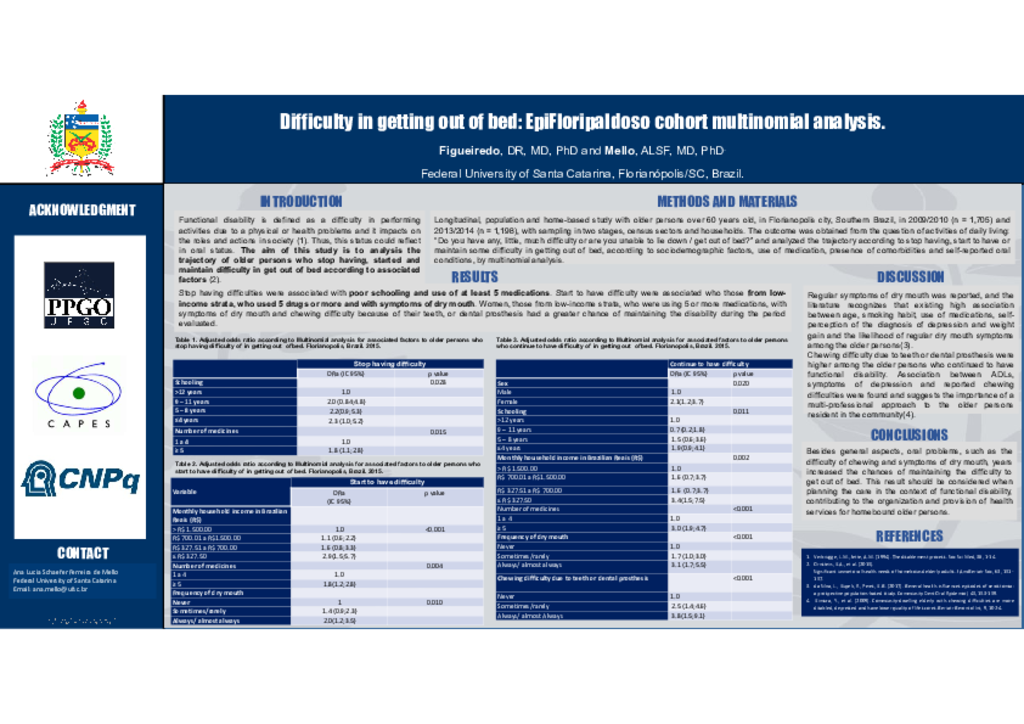Objective: To analyze the factors associated with the aged who stopped having, started having or maintained the difficulty to get out of bed. Methods: Longitudinal, population and home-based study with elderly people over 60 years old, in Florianópolis city, Southern Brazil, in 2009/2010 (n = 1,705) and 2013/2014 (n = 1,198), with sampling in two stages, census sectors and households. The outcome was obtained from the question of activities of daily living: “Do you have any, little, much difficulty or are you unable to lie down / get out of bed?” and analyzed the trajectory according to stop having, start to have or maintain some difficulty in getting out of bed, according to sociodemographic factors, use of medication, presence of comorbidities and self-reported oral conditions, by multinomial analysis. Results: Stop having difficulties were associated with better schooling, use of at least 5 medications and the presence of comorbidities. To have difficulty were associated to be older, those from low-income strata, and who used 5 drugs or more. Women, older, those from low-income strata, with comorbidities, who were using 5 or more medications, with symptoms of dry mouth and difficulty in eating because of their teeth, had a greater chance of maintaining the disability during the period evaluated. Conclusion: Besides general aspects, oral problems, such as the difficulty of chewing and symptoms of dry mouth, increased the chances of maintaining the difficulty to get out of bed. This result should be considered when planning the care in the context of functional disability, contributing to the organization and provision of health services for homebound elders.
- 44 views




